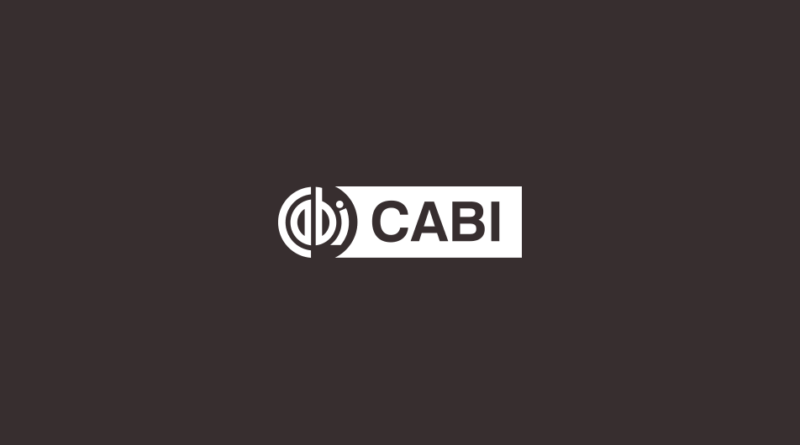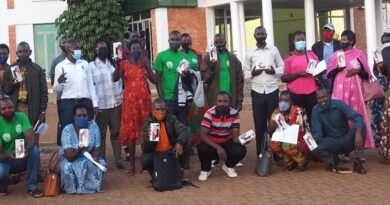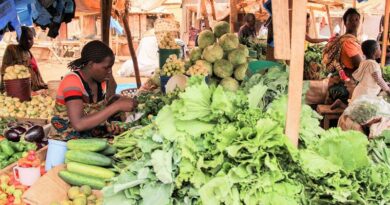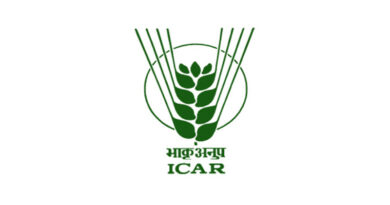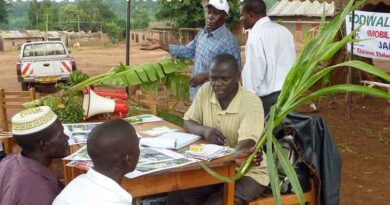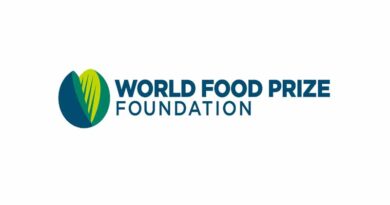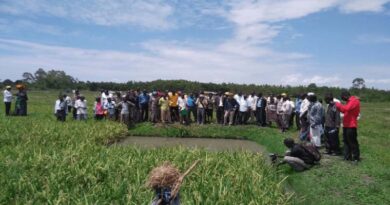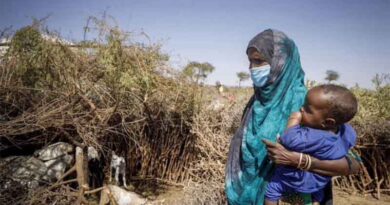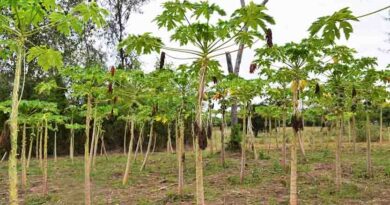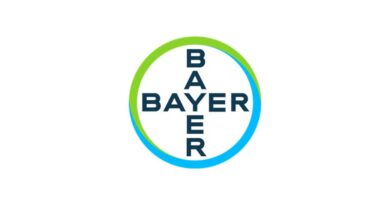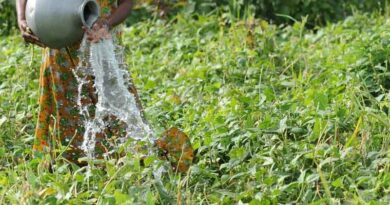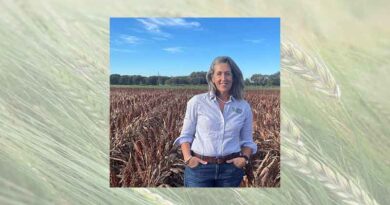Banana farmers in Uganda and Tanzania reap a 64% increase in yields worth an extra USD $8.15m a year
06 August 2021, Uganda: CABI’s experts in communication and extension working with NARO and partners have played a key role in helping banana farmers in Uganda and Tanzania reap a 64% increase in yields – from 10mt/ha/year to 19mt/ha/year – worth an extra USD $8.15m a year.
The successes – highlighted as part of a summary of the five-year Bill & Melinda Gates Foundation funded ‘Improving banana agronomy practices for small scale farmers in highland banana cropping systems East Africa’ project – also included two farmers, one in Isingiro, Uganda, and one in Bukoba, Tanzania, who were able to build a house and a new goat unit with their increased yields and profits.
In total, 47,650 people were reached – through a range of communication methods and extension services – over the course of the banana agronomy project which was led by the National Agricultural Research Organisation (NARO) and implemented in partnership with the Tanzania Agricultural Research Institute (TARI), Bioversity International, the International Institute of Tropical Agriculture (IITA), Makerere University and CABI.
As part of this project, the CABI project team, with support from the Africa Soil Health Consortium (ASHC), planned and executed dissemination campaigns, and provided hands-on training for developing communication materials including pretesting materials with farmers.
The ultimate aim was to improve the banana agronomy practices for small-scale farmers in the highland cropping systems of East Africa where bananas are both a staple food and the economic backbone of farmers and their families in the target countries. The project team worked in Uganda and Tanzania to help extension workers and farmers learn more about better site selection to grow their crops as well as enhanced land preparation, appropriate spacing, mulching, improved varieties, water and soil conservation and pest and disease control management among others.
In Tanzania, a banana calendar – to guide farmers through activities for each month of the year – and an extension guide and banana poster were developed. In order to increase the reach and value of the communication materials, scaling agents were given copies of the materials and were trained in their use to, in turn, train farmers. Nearly 70% of the scaling agents surveyed rated the banana calendar as the most useful followed by the banana poster (50%) and extension guide (21%).
An excerpt from the banana calendar for July – (Credit: CABI).
Meanwhile in Uganda, a 12-week radio campaign had been conducted earlier before the onset of farmer trainings and later on banana drama production that was screened to a limited audience. This was in addition to a ‘Grow Bananas Better’ extension guide and ‘Banana Agronomy Story Chart’ in English and local languages.
Among the trained scaling agents, 60% surveyed said the extension guide was most useful to them because of the detailed information it provided followed by a story chart (57%) that has illustrations and translated to local languages, radio campaign (32%) and banana drama (10%) due to the limited access to the drama and radio campaign recordings. Topics most covered during the farmer training in Tanzania was pest and disease management (70%) while in Uganda plant nutrition was focused on the most (39%).
Both Tanzania and Ugandan farmers found most useful topics as pests and disease management, plant nutrition, soil and water conservation and planting.
‘Banana and I’ – episode 1 of the banana drama
Christine Alokit, Communication and Extension Scientist for CABI based in Uganda, said, “Overall, all agents in both countries found the materials useful – particularly materials with less text, more illustrations and when translated to local languages.
“We found that print materials were easier to use but that the banana drama and radio campaign in Uganda were used less due to limited access to the recordings and that information on pests and diseases was the most covered sub topic but difficult to understand by farmers.
“This could be addressed by further training as well as a review on the use of materials to address gaps and confirm accuracy of content as delivered by the scaling agents.”
The Banana Agronomy Project Review Meeting also considered the leveraging of ICT in improving access to learning through digital tools – in transitioning from paper to digital tools for data collection.
It is believed that, on average, USD $275,644 could be saved by using digital extension services – such as a mobile app – rather than printed forms of communication which complemented the online resources. Examples, cited at the review meeting, included the online Uganda Banana Farmers Group which one farmer said is useful as members are willing to help each other in respect of better banana growing practices.

